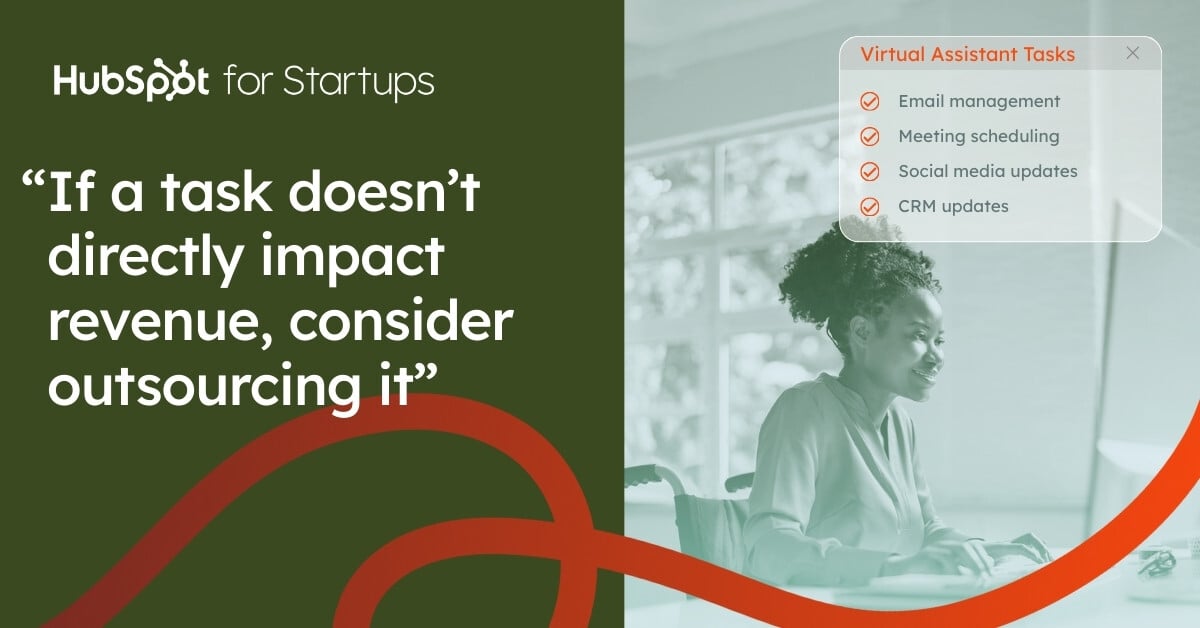The Founder’s Guide to Delegating Effectively to Virtual Assistants
Time is your most valuable asset — start treating it like one. Here's how to delegate like a pro.
written by: Coconut VA

Time is your most valuable asset — start treating it like one. Here's how to delegate like a pro.
written by: Coconut VA

As a founder, you wear multiple hats: CEO, marketer, operations lead, and customer support rep.
It’s easy to get caught up in the day-to-day grind, but doing everything yourself isn’t sustainable. It leads to burnout, bottlenecks, and slower business growth.
The solution? Delegating to a virtual assistant (VA). A skilled VA can take over routine tasks, freeing you up to focus on what actually moves the needle: strategy, revenue, and scaling your company.
But to delegate effectively, you need a plan. Here’s how to do it.
Before you can delegate, you need to know where your time is going.
For one week, track every task you complete. Use a simple spreadsheet or a time-tracking tool like Toggl or RescueTime. Identify the tasks that eat up the most hours, repetitive or administrative work, and tasks that don’t require your expertise.
Look for patterns. Are you spending too much time on email, scheduling, or data entry? These are perfect tasks for a virtual executive assistant to handle.
Common time drains include:
If a task is repetitive and doesn't require strategic thinking, it’s a prime candidate for delegation.
Now, you have a list of tasks that are good candidates for handing off to a VA. But what should you actually pass on, and what should you keep on your personal to-do list?
The Pareto Principle states that 20% of your work generates 80% of your results. The other 80%? It’s busywork. Offload those low-impact tasks to a virtual assistant service so you can focus on high-value activities.
Break tasks into the following categories:
Still unsure what to delegate? If a task doesn’t directly impact revenue, consider outsourcing it.
Now that you know what to delegate, set up a system for success.
Instead of saying, "Handle my inbox," set specific expectations: “Prioritize emails from clients, flag urgent ones, and respond to general inquiries within 24 hours.”
Create simple Standard Operating Procedures (SOPs) for recurring tasks. These can be:
Keep everything organized with project management tools like:
For more information on helpful tools, you can explore resources such as this guide to project management tools for startups.
With clear instructions and the right tools, your virtual assistant can execute tasks without constant check-ins.
A virtual assistant isn’t a mind reader — clear communication is key.
Be direct about what tasks you need the VA to complete and when. Here are some starting points:
Use weekly check-ins or task updates via Slack, email, or a shared document to stay on top of tasks. This ensures alignment without micromanaging.
Once you’ve provided guidance, step back. Micromanagement kills efficiency. Focus on results, not how the work gets done.
Make delegation frictionless with automation and collaboration tools.
Use tools like Zapier to automate repetitive processes, such as:
Cloud-based tools like Google Drive and Dropbox keep files accessible and organized, allowing for easy collaboration and management.
Use reporting dashboards or weekly summaries to measure productivity. Tools like Jibble or Time Doctor can track tasks and efficiency.
How do you know if delegation is working? There are several methods for measuring the effectiveness of delegation.
Compare the time spent on tasks before versus after delegation. Are you spending less time on admin work? If so, delegation is saving you time.
Consider the impact of delegating on revenue, customer response times, and overall efficiency.
Not everything will work perfectly the first time. Refine your delegation strategy based on what works and what doesn't.
The most successful founders aren’t the ones doing everything; they’re the ones who know what to stop doing. Delegation isn’t about giving up control. It’s about creating space for what really matters.
The sooner you get the right support in place, the sooner you can shift from working in your business to working on it.

Coconut offers a smarter way to hire remote talent: pay month-to-month and save up to 50% compared to hiring a full-time U.S. employee. As part of the HubSpot for Startups community, you can grab 40 hours of free work to help you get started with Coconut. No long-term contracts, no hidden fees—just expert support to help you scale faster and more efficiently. Start today and find the VA best fit for your business!

Maximize your productivity and efficiency by understanding the critical differences between generalist and specialist virtual assistants.

With so much competition for the top talent, startups need creative strategies and unique compensation ideas to help pull in the cream of the crop.

These tips and tools can improve sales productivity for startups, leading to more money savings and even a revenue boost.
